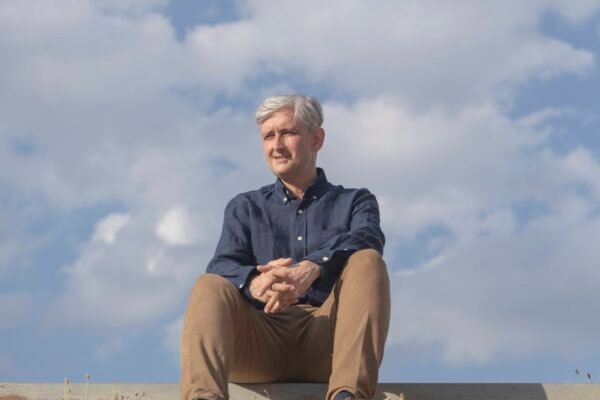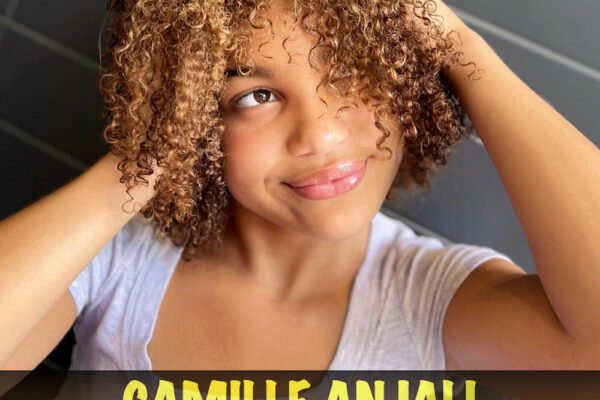Q: Let’s start with “Volver al aire”. What’s the first image or emotion that comes to your mind when you hear that title now?
A: I’m extreeemely slow when it comes to composing. I must have been fifteen or sixteen when I wrote the first melodies of what’s now Volver al aire, and — believe it or not — it started as a metal song! I’ve been shaping it little by little, so when I think of it now, it’s like watching your whole life flash before you: the song has grown up with me; now it’s that bird finally leaving the nest.
Q: When you were creating “Volver al aire”, did it feel like you were talking to her, or more like she was talking through you?
A: It sounds unbelievable, but it’s true: I wrote Volver al aire, like the rest of the album Carmina Alegría, without really knowing what I was doing. I came from rock, and this music was light-years away from that world. I never thought of releasing it. But on the night my grandmother died, I couldn’t sleep, and suddenly something clicked. I realized I’d been recording an album for years without realizing it — Carmina Alegría, a tribute to my grandmother.
Q: There’s something deeply cinematic about the way your songs unfold, almost like scenes. Do you see your music visually when you write, or is it more instinctive and emotional?
A: The song decides how it wants to grow; I just try to listen and stay out of the way. Composers who force their will onto their songs remind me of over-controlling parents who never stop to think that their children have a life of their own.
Q: Your work often moves between worlds of poetry, performance, and music. When you’re working on a song like “Volver al aire”, where does it begin for you — with words, a sound, or a feeling?
A: I always joke that the choreography comes first and everything else follows. People usually ask, “What comes first, lyrics or music?”, and pop-production gurus will tell you it’s easier to adjust the melody to fit the words. But that kind of artificial game reminds me of a poet counting syllables, searching for a rhyme.
That’s why I like your question — for me, music and lyrics only matter when they’re born from a feeling. As a musician, I’m drawn to those who approach it as a technical challenge or a sound laboratory, and I try to bring some of that into my work. But as an artist, everything I do starts from the need to express something that overflows.
Q: The title translates roughly to “Return to the air”. What does that “return” mean to you? Is it about healing, letting go, or just breathing again after everything?
A: Every new interpretation of what return to air means enriches the song, so I prefer not to seal its meaning. Some see it as a kind of spiritual ascent; others, as that moment when you can finally breathe again after grief. For me, it was simply a way of talking about death.
Q: Can you tell us what you meant by that? How does “Volver al aire” fit into that idea?
A: Imagine life as a parenthesis between all the time we weren’t here and all the time we won’t be — as if we came from the air and, sooner or later, will return to it.
Q: There’s a kind of haunting lightness in this track, like sorrow with wings. How do you find that balance between melancholy and beauty when you write?
A: It’s not something I look for; it’s what I find when I look inward. There’s no aesthetic choice — only the need to let something out. Whatever comes ends up taking that shape — that “sorrow with wings” you mentioned, which I love. I believe in that pain, in those wings, and in music’s ability to be something more than music.
Q: You’ve made books, records, performances, but “Volver al aire” feels especially personal. Was there a moment during the process when you realized, “this isn’t just another song”?
A: It was the night of June 1st. I was in shock. I’d spent the morning beside my grandmother’s body, waiting for the funeral staff to arrive. And suddenly, the whole album appeared before me — the songs, their order, the hidden meaning behind each one. Like a puzzle putting itself together. That’s when I knew Volver al aire would be one of Carmina Alegría’s cornerstones. It’s easy to see this album as a coping mechanism — and in part it is — but it’s also, as you said, about giving wings to sorrow.
Q: The record plays a lot with identity — “Yo” as both mask and truth. Do you ever feel like you’re revealing too much when you write, or does the music give you a kind of safe disguise?
A: The music world is full of emotional exhibitionism, and that makes me uncomfortable. “Yo” — “I, me” — is a way of hiding inside a generic pronoun, of saying “focus on the music; it doesn’t matter who’s behind it — I’m no different from anyone else.” Yo is yo, and it doesn’t matter who says it. You know what? I’ve spent this whole interview trying to play the role of “artist-worthy-of-being-interviewed,” while holding back the urge to laugh at myself. I know that, as a reader, I’d probably be thinking, “What makes this guy believe his stuff matters?” Calling myself “Yo” neutralizes all that. That’s why I’ve refused interviews for years… until now.
Q: Before we wrap, what’s next for you for the rest of this year? Are you planning to take Carmina Alegría on stage, or are there new projects already forming in your head?
A: I’m releasing a new Carmina Alegría single every two weeks, and the full album comes out on November 21st. You mentioned that “cinematic” feeling in my songs — and you’re right: the record traces grief and translates it into music. But since you ask, before Carmina Alegría I was working on another project I had to pause, which I hope to finish and share in early 2026: Del presente inmediato (y lo que Alicia encontró allí) — Of the Immediate Present (and What Alice Found There).
Listening to songs so you don’t have to! Just kidding :D, you totally should. Music blogger by day, nurse by night





